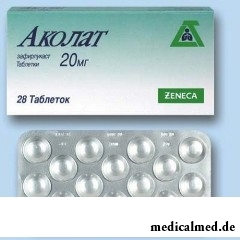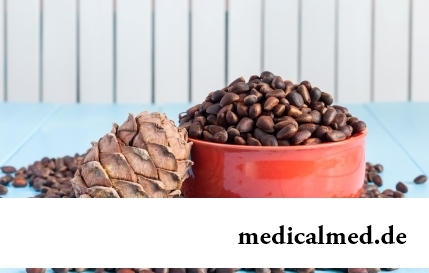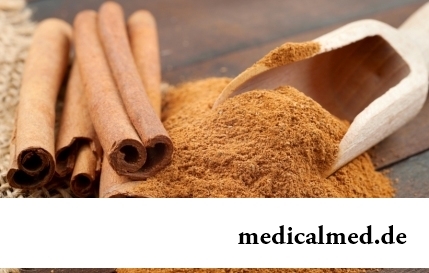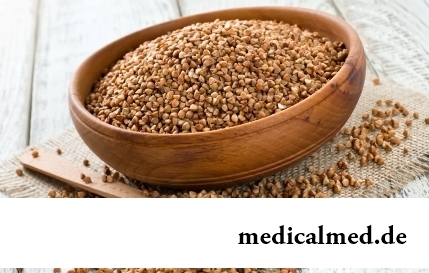





Akolat
Application instruction:
 Akolat is the antagonist (blocker) of leukotriene receptors, drug for treatment of allergic rhinitis and bronchial asthma.
Akolat is the antagonist (blocker) of leukotriene receptors, drug for treatment of allergic rhinitis and bronchial asthma.
Form of release and structure
Dosage form – tablets, coated: round, convex from two parties, almost white or white color, on one of the parties – an engraving of "ACCOLATE 20" (in blisters on 14 pieces, 2 blisters in a pack cardboard).
Contains in 1 tablet:
- Active agent: зафирлукаст – 20 mg;
- Additional components: gipromelloza, magnesium stearate, titanium dioxide, microcrystallic cellulose, lactoses monohydrate, sodium of a kroskarmelloz, povidone.
Indications to use
Akolat is applied to a basic maintenance therapy and prevention of attacks of bronchial asthma.
Contraindications
- Children's age up to 7 years;
- Lactation period;
- Hypersensitivity to any component which is a part of drug.
It is recommended not to appoint, whenever possible, medicine to patients with abnormal liver functions.
Clinical experience of use of Akolat for patients is more senior than 65 years is limited therefore at advanced age drug should be used with care.
Safety of use of a zafirlukast for pregnant women is not established, drug can be appointed only if the estimated advantage for the woman exceeds potential risks for a fruit.
Route of administration and dosage
Pill Akolat should be taken inside.
The recommended doses:
- Adults and teenagers are more senior than 12 years – on 1 tablet 2 times a day;
- Children of 7-11 years – on ½ tablets 2 times a day.
At renal failures dose adjustment is not required.
At abnormal liver functions the clearance of a zafirlukast is reduced. In an initiation of treatment to such patients usually appoint on 1 tablet 2 times a day, further adjust a dose on the basis of the clinical answer.
Akolat has to be accepted is long.
Side effects
- From the central nervous system: often – a headache, sleeplessness;
- From digestive tract: often – abdominal pains, nausea and vomiting;
- From a liver and biliary tract: seldom – a hyperbilirubinemia without the increased content of liver enzymes, symptomatic hepatitis, including with a hyperbilirubinemia; very seldom – fulminantny hepatitis, a liver failure;
- From hematologic system: seldom – formation of hematomas at bruises, thrombocytopenia, bleedings (including a hypermenorrhea); very seldom – an agranulocytosis;
- From a musculoskeletal system: seldom – an arthralgia and a mialgiya;
- From integuments: not often – hypostasis; seldom – a skin itch, rash (including vesicular), hypersensitivity reactions, including a small tortoiseshell and a Quincke's disease;
- Others: often – weakness; elderly people have an increase in frequency of infections, is more often than a respiratory path (proceed usually easily and do not demand the treatment termination).
The specified side effects, as a rule, pass after drug withdrawal. The headache and disturbances from the alimentary system arising at Akolat's reception usually have moderate character and do not demand the therapy termination.
Special instructions
For achievement of the maximum effect Akolat it is necessary to accept regularly, even during the periods when symptoms of bronchial asthma do not disturb. Drug, as a rule, needs to continue to be accepted also during an exacerbation of a disease.
As well as inhalation glucocorticosteroids (GKS), Akolat is not intended for stopping of bad asthmatic attacks (bronchospasms).
Upon transition on Akolat it is not necessary to cancel peroral or inhalation GKS sharply.
At intermittent or unstable bronchial asthma action of a zafirlukast was not studied.
Separate cases of development are known during treatment for this drug of eosinophilic states, including eosinophilic pneumonia and Churg-Strauss syndrome syndrome. Their manifestations can affect various bodies and systems of an organism, for example, cordial complications, development of a vasculitis and neuropathy, deterioration in function of lungs are possible. And though it was not succeeded to establish relationship of cause and effect of these complications with Akolat's reception, in case of eosinophilic states it is necessary to cancel drug and not to resume its reception, even for establishment of the reason for the developed eosinophilia.
The patients receiving at the same time warfarin need to control a prothrombin time.
Akolat can promote the increase in level of hepatic transaminases which is proceeding asymptomatically and having passing character, but being early a drug hepatotoxic symptom, and in hotel cases – associated with more serious hepatocellular violations, a liver failure and the fulminant course of hepatitis. During the post-market researches very exceptional cases of acute disorders of function of a liver to which symptoms of dysfunction or clinical symptoms did not precede were revealed.
Akolat's reception should be stopped immediately in case of any symptoms or signs indicating dysfunction of a liver such as pain in the right upper quadrant of a stomach, nausea, vomiting, anorexia, increase in a liver, apathy, slackness, increased fatigue, grippopodobny symptoms, an itch and jaundice. Further it is necessary to determine as soon as possible the level of serumal transaminases, especially alaninaminotranspherases.
Considering the possible problems with a liver described above, it is regularly necessary to control during treatment by Akolat serumal transaminases. And though regular control will not prevent development of serious violations from a liver, doctors will be able to consider the values received during the periodic researches of liver enzymes and to timely reveal functional disturbances of a liver. Along with urgent drug withdrawal it can promote improvement of a condition of the patient.
It is necessary to cancel drug immediately and in case of identification of signs of a hepatotoxic. If it is not connected with any other reason, repeated appointment of Akolat of this category of patients is contraindicated.
Not data that зафирлукаст exerts a negative impact on the speed of reactions and ability to concentration of attention.
Medicinal interaction
Akolat can be applied in a combination with other types of the medicamentous therapy intended for treatment of an allergy and bronchial asthma, for example, by inhalation GKS, peroral and inhalation bronchodilators, antihistamines and antibiotics without signs of undesirable interaction.
Acetylsalicylic acid (in a daily dose of 2600 mg – on 650 mg 4 times a day) can increase the level of a zafirlukast in plasma approximately for 45%, erythromycin – to lower approximately by 40%.
In clinical trials of use of a zafirlukast simultaneous with theophylline decrease in plasma concentration of a zafirlukast approximately for 30% without change of level of theophylline was noted. However in post-market researches separate cases of increase in concentration and theophylline were noted.
At simultaneous use of a terfenadin total concentration of a zafirlukast decreases by 54%.
Akolat applied in a combination with warfarin promotes increase in a prothrombin time by 35% therefore during treatment it is necessary to control this indicator.
At the smoking people increase in clearance of a zafirlukast approximately for 20% is possible.
Akolat does not interact with oral contraceptives.
Terms and storage conditions
To store in the place unavailable to children, at a temperature below 30 °C.
Period of validity – 3 years.
In our intestines are born, millions of bacteria live and die. They can be seen only at strong increase, but if they gathered, then would be located in a usual coffee cup.

Weakness of an ankle joint – very widespread problem. Its existence is demonstrated by tendency to a podvorachivaniye of legs п...
Section: Articles about health
Olive oil – the product capable to make a powerful contribution to health of the person if it includes it in the diet. The rich vitamin composition of oil does it by a product number one from many diseases including from deadly. Only two tablespoons...
Section: Articles about health
The name of this disease precisely reflects the problem reason: it consists in the bra fastener pressure upon a certain zone of a back. At the same time one of vertebrae of chest department of a backbone is as if blocked and loses mobility, and the loading falling on it is distributed on the next vertebrae. At 70-80% of women local pains in a backbone point on which the fastener of the often put most on bra presses result....
Section: Articles about health
Statistically, at the address to doctors seven of each ten patients complain of a headache. Actually people, periodically...
Section: Articles about health
The hysteromyoma is diagnosed more than at a third of women 35 years are more senior. This high-quality new growth which at early stages successfully resolves by means of medicines. It is necessary to resort to an operative measure only in those a case...
Section: Articles about health
Each of us faces from time to time that other people need the immediate help. We react to it differently: one at once call doctors and police, others rush to victims and try to save them independently. Some pass by at all … Certainly, desire to help the neighbor who got into trouble, quite naturally for any decent person. However not everyone understands that to work in a similar situation, being guided by exclusively good...
Section: Articles about health
Ayurveda - the most ancient tselitelsky practice which came to us from India. It represents the doctrine about maintenance physical, ps...
Section: Articles about health
High temperature - a frequent symptom of such widespread diseases as a SARS, quinsy, pneumonia, etc. To reduce heat, having facilitated a condition of the patient, doctors recommend to accept antipyretics, however their use is not always possible. Too h...
Section: Articles about health
The winter swimming in open reservoirs called in our country by "winter swimming" – officially recognized sport and one of the most extreme ways of a hardening of an organism. This occupation has an old story and adherents in many countries. The international competitions in winter heats on open water, and every two years – the World Cup are annually held. Despite huge popularity and the proved advantage for health, winter swimming is still surrounded with hardy delusions. Ра...
Section: Articles about health
More than a half of the married couples which faced prostatitis – leave. The new broadcast "Female View of Prostatitis" will help to learn...
Section: Articles about health
The state of health of the person in many respects depends on food. The organism will well function if during food it receive only useful substances, necessary vitamins and microelements. In this case there will be no problems with digestion, with лишн...
Section: Articles about health
Some people consider what for medicine of the 21st century of secrets in the field of health of the person almost does not exist. It absolutely not so. The more answers scientists receive, the more the most difficult questions are raised for them by life. Besides, there are diseases which are not explained with science in any way of which existence people know for 100-150 years. These diseases meet not so often, but from some of them nobody is insured....
Section: Articles about health
Almost each of us during life faced dissatisfaction with own body. At such moments, as a rule, we beginning...
Section: Articles about health
New year, wedding, birthday, office party – an occasion to drink at the Russian person will always be. How to reduce a negative impact of alcohol by an organism and to avoid a condition of strong intoxication? The most correct council – to refuse the use spirits напитк...
Section: Articles about health
What they, women? Beautiful, gentle, passionate and at the same time windy, gusty, and nervous. And what is stranger: have all these qualities of the woman at the same time. But here only the mood their time sharply changes on completely opposite: in the morning they laugh and joke, and in the evening cry or are irritated....
Section: Articles about health
Eyes – unique body on the structure thanks to which the person obtains about 80% of information on the world around: about a form...
Section: Articles about health
History of cultivation of a buckwheat contains more than five thousand years. Grain which is received from this plant is used for preparation of porridges, soups, baked puddings and puddings, do flour which is one of the main ingredients of the noodles popular in of it...
Section: Articles about health
A lot of things depend on a condition of a backbone in a human body, a backbone - not only a support for a body, it also a receptacle for a spinal cord, that is why malfunctions with a backbone are so dangerous. To treat rachis diseases very difficult and long, it is much simpler and more correct not to bring to a disease. Conforming to the rules provided in this article it is possible to avoid the majority of the problems connected with a backbone including those which are considered to be age, but a cat...
Section: Articles about health
Climax - process of fading of reproductive function of an organism in process of its aging. At women the main sign of its approach showing...
Section: Articles about health
Hemorrhoids – extremely widespread disease. Periodically arising inflammations and bleeding of hemorrhoidal nodes cause serious discomfort to nearly fifteen percent of adults. Meanwhile, having a clear idea of the aggravation reasons...
Section: Articles about health
All got used long ago that, having addressed the plastic surgeon, it is possible to modify natural parameters of a figure or to minimize the damages put to appearance with ruthless time. Many people (preferential women) worldwide annually decide on operations such. However there are also much more exotic interventions which are carried out seldom so far and cost expensive very much. We bring the story about the most unusual of them to your attention....
Section: Articles about health
The words "disease" and "patient" not without reason come from one root – "pain". As a rule, symptoms of illnesses thoroughly spoil the patient...
Section: Articles about health
Quite large number of people adheres to the principles of vegetarian food. But how to be if in a family of vegetarians there are children? Whether it is possible to eat also it the same as to parents, or after all the children's organism is not adapted for the use only раст...
Section: Articles about health
Popular joke that there are no healthy people, and is nedoobsledovanny, most of us considers an honest truth, continually it is necessary to hear that all of us are sick hardly from a school bench. It is hard to say whether so it actually because too often people are treated for nonexistent diseases, and sometimes call a disease what is something another. Sometimes in it the doctors of old school making diagnoses which are cancelled long ago – medicine still unless are guilty...
Section: Articles about health
Dogrose – one of the most widespread adornment and medicinal plants growing practically in all territory ours...
Section: Articles about health
Striya (extension) are the defects of skin having an appearance of direct or wavy strips from 1 to 10 cm long and 1-5 mm wide. In most cases at women of a striya are located on a stomach, hips, a breast or buttocks. At athletes they can appear on shoulders and внутренн...
Section: Articles about health
What woman does not dream of a beautiful and thick hair? While physicians developed difficult schemes on hair transplant, in the industry of hairdresser's art a few years ago there was a sensation – methods of hair extension appeared. It would seem, dreams came true: though the procedure of building also does not belong to the category cheap, practically any woman can increase several times the volume of hair, change their length and color – generally, to become the real beauty queen....
Section: Articles about health
